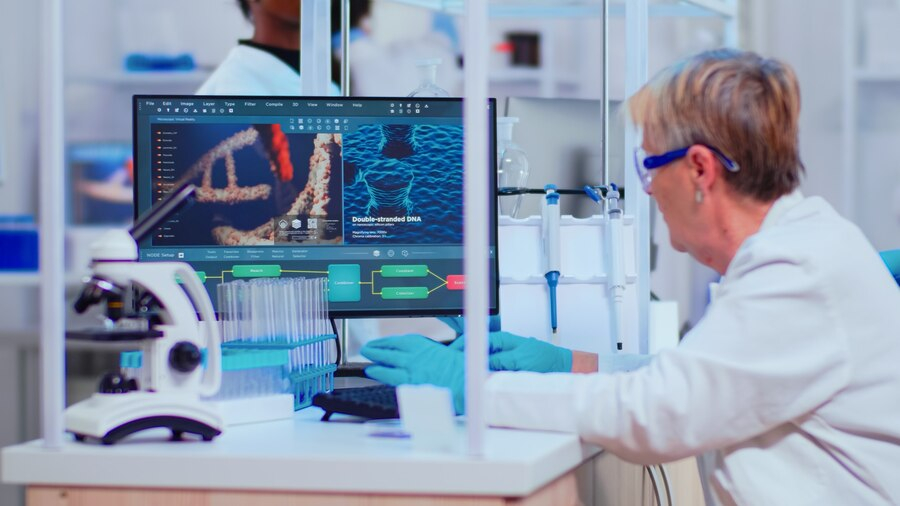In recent years, medical science has taken giant leaps forward, and one of the most exciting advancements is genomic testing. This technology is changing how doctors understand and treat diseases, offering more personalized and effective healthcare. In this blog, we will explore how genomic testing is transforming modern healthcare, making treatments more precise, improving disease prevention, and offering new insights into conditions that were previously difficult to manage.
What Is Genomic Testing?
Genomic Testing is a scientific process that examines your DNA—the genetic code that makes you who you are. This testing helps doctors identify specific genes, mutations, or variations in your DNA that could lead to health problems. Unlike regular tests that focus on symptoms or general health markers, genomic testing digs deep into your unique genetic makeup. It offers a closer look at why you might be prone to certain diseases or how your body will respond to specific treatments.
Personalized Medicine: A Game-Changer
One of the most significant impacts of genomic testing is the rise of personalized or precision medicine. Traditionally, doctors have used a one-size-fits-all approach to treat conditions, relying on standard medications and treatments that work for most people. However, this method doesn’t always work for everyone. Some patients may not respond to a treatment, while others might suffer from side effects.
With genomic testing, healthcare providers can design treatment plans based on your unique genetic profile. For example, if you’re diagnosed with cancer, genomic testing can reveal the specific genetic mutations causing the disease. Doctors can then choose targeted therapies that will attack those particular mutations, offering a more effective treatment with fewer side effects. This approach increases the chances of successful outcomes and reduces trial and error in treatment.
Early Disease Detection and Prevention
Another way genomic testing is transforming healthcare is through early disease detection and prevention. By analyzing your genes, doctors can identify genetic markers that indicate a higher risk of developing certain diseases. For example, women who carry mutations in the BRCA1 or BRCA2 genes are at a higher risk of developing breast and ovarian cancers. Knowing this allows doctors to recommend preventive measures, such as more frequent screenings or even surgeries to reduce the risk.
Genomic testing isn’t limited to cancer. It can also reveal your risk for heart disease, diabetes, and other hereditary conditions. By catching these risks early, doctors can advise lifestyle changes, medications, or other preventive measures to help you avoid serious health issues down the line.
Understanding Rare and Complex Conditions
Some health conditions are challenging to diagnose because their symptoms are vague or mimic other diseases. These are often rare genetic disorders that affect only a small percentage of the population. In the past, diagnosing these conditions required extensive testing, often with little success. Genomic testing can now identify these rare genetic mutations much faster, allowing doctors to diagnose and treat patients more efficiently.
For families with a history of unexplained health issues, genomic testing offers answers that traditional medical tests might not. It provides insights into complex conditions, helping doctors develop more effective treatment strategies and improving the patient’s quality of life.
Improving Drug Development
Genomic testing is also revolutionizing the way new drugs are developed. By understanding the genetic factors behind diseases, pharmaceutical companies can design drugs that target specific genetic mutations. This makes drug development more efficient and can lead to medications that are better suited to treating particular conditions.
For example, researchers developing drugs for Alzheimer’s disease can use genomic data to focus on specific genes that are linked to the condition. This targeted approach speeds up the drug development process and results in treatments that are more likely to work for the patients who need them most.
Ethical Considerations and Challenges
While genomic testing holds incredible promise, it also raises ethical concerns. One significant issue is the potential for genetic discrimination. If your genomic data reveals that you are at high risk for a particular disease, insurance companies or employers could use that information against you. To address these concerns, laws like the Genetic Information Nondiscrimination Act (GINA) have been put in place to protect individuals from such discrimination.
Privacy is another concern. Genomic data is incredibly personal, and many people worry about who will have access to their genetic information. It’s essential for healthcare providers and companies that offer genomic testing to have strict data privacy policies in place to ensure that your information is kept confidential.
The Future of Genomic Testing in Healthcare
As genomic testing becomes more widespread, it will likely play an even larger role in healthcare. Costs are expected to drop, making these tests more accessible to everyone. In the future, genomic testing could become a routine part of medical checkups, helping doctors identify potential health risks before they develop into full-blown diseases.
This technology will also lead to more advancements in treatments for genetic conditions. It is allowing doctors to develop therapies that are more tailored to individual patients. It could even pave the way for gene editing technologies like CRISPR, which may one day allow doctors to correct genetic mutations before they cause illness.
Conclusion
Genomic testing is revolutionizing modern healthcare by offering personalized treatments, early detection of diseases, and a better understanding of complex conditions. It’s a powerful tool that helps doctors make more informed decisions. It gives patients the opportunity to take control of their health. As this technology continues to evolve, it will undoubtedly lead to more breakthroughs that will shape the future of medicine for the better.
By embracing genomic testing, we are not only improving how we treat diseases but also opening new doors to a healthier, more personalized future.
Read More: Top 10 Benefits of Whole Genome Sequencing Service

